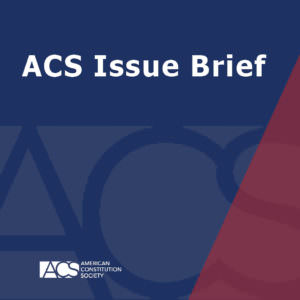The Google Book Search Settlement: Ends, Means, and the Future of Books
Professor of Law, Cornell Law School

ACS is pleased to distribute an Issue Brief by James Grimmelmann, Associate Professor of Law, New York Law School, entitled "The Google Book Search Settlement: Ends, Means, and the Future of Books". Drawing upon his experience as a lawyer, technologist, and a member of New York Law School's Institute for Information Law and Policy, Professor Grimmelmann discusses some of the public interest issues that arise from the pending settlement (still subject to court approval) of a class action lawsuit involving Google Books. The background, as explained by the author, is as follows:
For the past four years, Google has been systematically making digital copies of books in the collections of many major university libraries. It made the digital copies searchable through its web site--you couldn't read the books, but you could at least find out where the phrase you're looking for appears within them. This outraged copyright owners, who filed a class action lawsuit to make Google stop. Then, last fall, the parties to this large class action announced an even larger settlement: one that would give Google a license not only to scan books, but also to sell them.
The author analyzes the lawsuit and settlement, examining what he perceives as the potential
benefits of the settlement--a unprecedented electronic backlist of American arts and letters, a substantial new revenue stream for authors and publishers, and a comprehensive new information resource for libraries--as well as its potential harms, including anti-competitive monopoly concerns and intellectual property concerns relating to orphan works. Professor Grimmelmann pays particular attention to the issues surrounding orphan works, "books under copyright but whose copyright owners cannot be found," describing how the settlement would authorize Google to start selling orphan works. Following his discussion of the settlement's substantive issues, Professor Grimmelmann discusses process concerns, arguing that as an issue that "substantially affects the interests of large swathes of the public," orphan works copyright issues are better addressed through legislation, not class action litigation. Professor Grimmelmann explains his view by stating:
The settlement tackles the orphan works problem, but through the judicial process. Laundering orphan works legislation through a class action lawsuit is both a brilliant response to legislative inaction and a dangerous use of the judicial power. Many of the public interest safeguards that would have been present in the political arena are attenuated in a seemingly private lawsuit; the lack of such safeguards is evident in the terms of the resulting settlement. The solution is to reinsert these missing public interest protections into the settlement.
Read the full Issue Brief here: The Google Book Search Settlement: Ends, Means, and the Future of Books
